In conflict-hit zones on the eastern and western border regions of Myanmar, health workers are reporting rising cases of tuberculosis and other diseases amid global aid cuts from the U.S and other international donors.
Myanmar had meager investment in the health sector, even before the military seized power in a coup four years ago, triggering widespread fighting. Strain on the system has intensified with a 7.7 magnitude earthquake on March 28 that killed more than 3,800 people.
Drastic cutbacks by the Trump administration at the Agency for International Development, or USAID, are impacting local health organizations that vulnerable populations rely on, particularly in border regions.
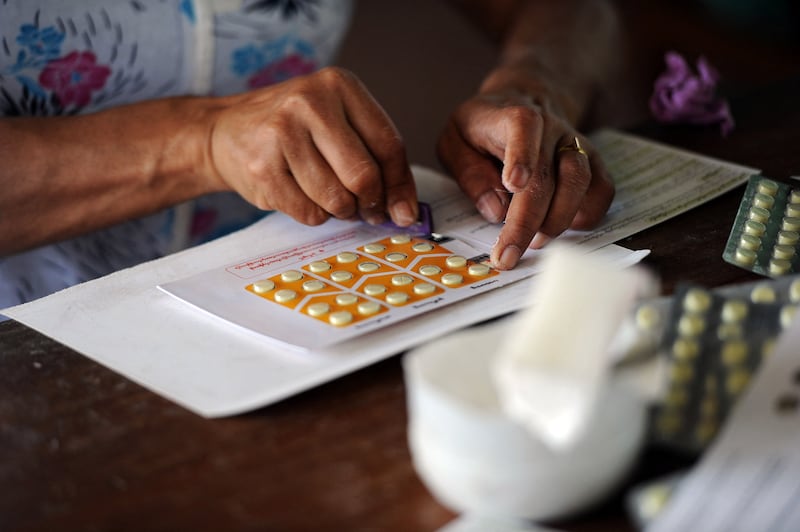
The Mon State Federal Council of Humanitarian and Rescue Department does public health reporting and provides medication and malaria testing kits to parts of eastern Myanmar’s Mon and Kayin states. They say their capacity has been slashed to a fraction of what it once was.
“I think thousands of people may have a lack of access in this area out of our 300,000 [population] before,” said department head Mi Soa Ta Jo, adding that they can only provide 30% of the malaria testing kits and medication they previously could to communities requesting it. Delayed testing and medication for malaria can have serious consequences like brain damage, impacting already overburdened caregivers, she said.
The group, one of many receiving USAID funding through intermediary organizations, says the cuts coincide with a rise in diseases like tuberculosis and HIV.
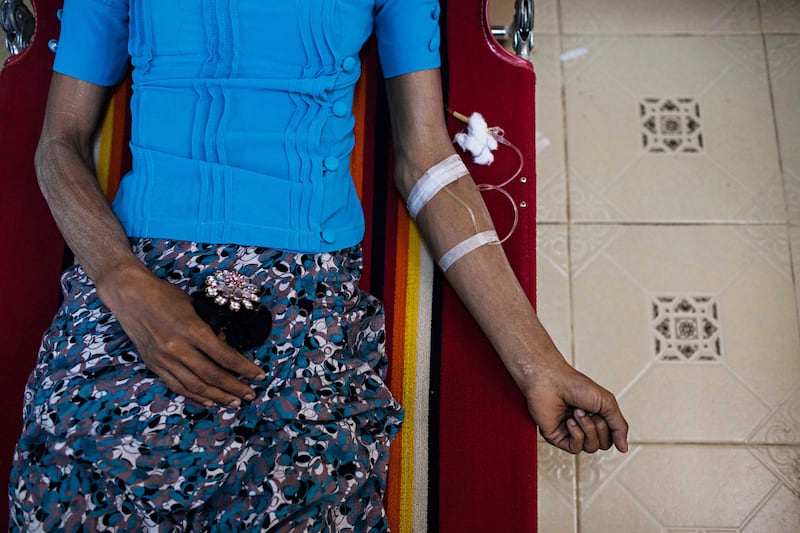
It‘s not just the U.S. that is scaling back its aid. The United Kingdom and France have also announced decreases in global development spending, with France cutting its overseas development assistance by 35% in February and launching a commission to investigate the funding’s impact.
“If there are consequences of the funding cuts from the U.S, from Europe, from everywhere -- it’s not only the U.S., it’s everybody who’s cutting funding - we will see them first on things like tuberculosis and vaccine-preventable diseases,” said Dr. Francois Nosten, director of the Shoklo Malaria Research Unit working on the Thai-Myanmar border. “That’s what we are concerned about.”
The four years of fighting, which has displaced 3 million people and killed thousands, has already disrupted vaccinations. From 2021 to 2023 in Myanmar, the World Health Organization reported an increase in cases of diphtheria, measles, Japanese encephalitis and a significant rise in acute flaccid paralysis, an indicator for polio.
Cuts to programming
In Myanmar’s northwestern region of Chin state, conflict between ethnic armed groups and junta forces has led to mass displacement.
Dr. Biak Cung Lian, the program manager for health and protection at the Chin Human Rights Organization, said that medical supply chains from cities have been disrupted. Health problems are being exacerbated by malnutrition and poor immunity.
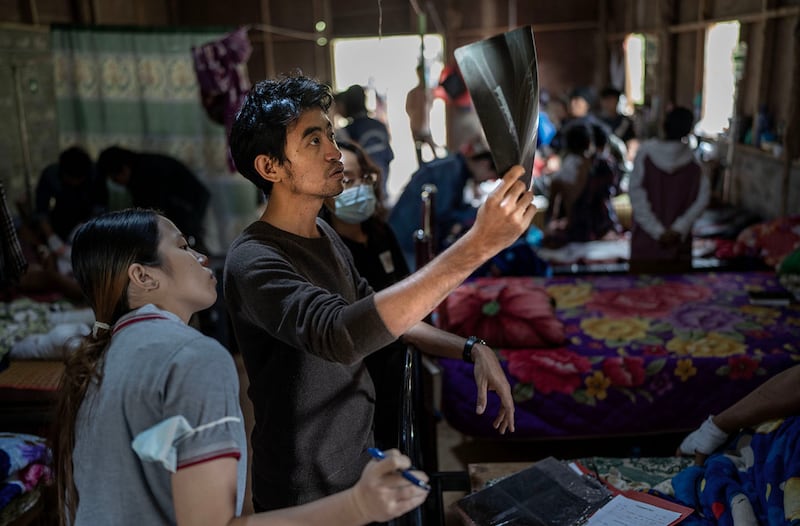
The cuts in USAID funding have affected his group’s efforts to treat tuberculosis, or TB, which spreads easily in crowded conditions. It has two mobile health programs focusing on TB screening, gender-based violence and psycho-social support. They have already laid off 60 staff.
The doctor also worries that HIV may spread more easily than before. Recently, many young people tested positive in a camp for displaced people on the border between the region of Sagaing and Chin state.
“Recently we heard that anti-retroviral therapy [for HIV] would be withheld because of the funding disruption. I’m not sure whether we will be able to procure (anti-retroviral therapy) drugs with our network,” he said, referencing medication taken by HIV patients to reduce the risk of transmission and slow the progression of the virus into AIDS.
“So we are in a state where we can’t do anything yet, but hopefully there will be something we can figure out,” Biak Cung Lian said.
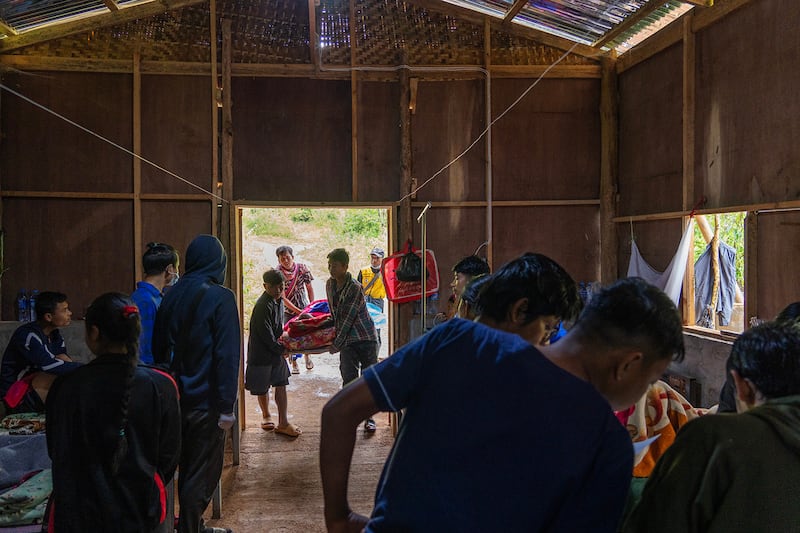
Lack of support for those displaced will also make it harder for other groups to treat illnesses compounded by malnutrition and poor immunity, health workers say.
“There is a certain level of difficulty in providing nutritional services to children under five years of age,” said Thitsar, a doctor from the Karenni Loyalty Mobile team, a nonprofit medical group in northeastern Myanmar’s Kayah state.
The group is helping to treat common illnesses like malaria and tuberculosis with limited medicine. The mobile clinic, set up by medical personnel participating in the protest for civil servants against Myanmar’s military, the Civil Disobedience Movement, is one of the few groups providing regular healthcare to internally displaced people in the region for communicable and non-communicable diseases.
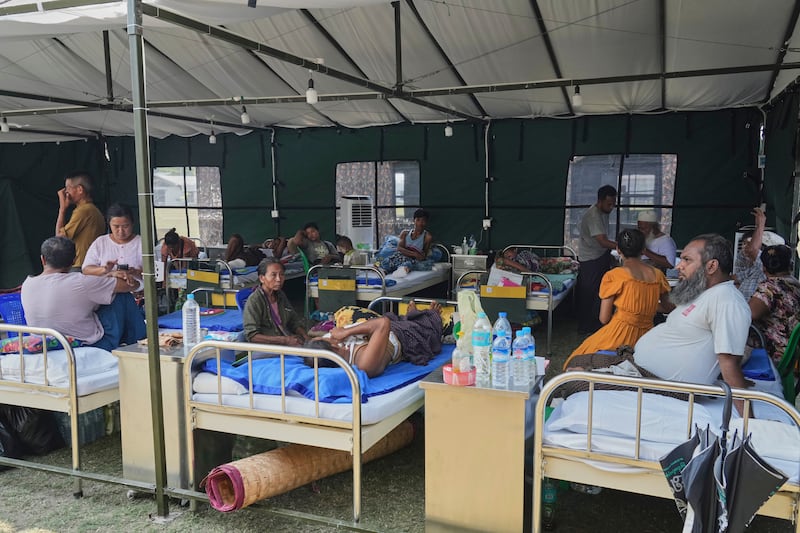
“There is malaria, and it’s expected to increase during the upcoming monsoon season. There is a limited amount of medicine available. We could not tell the exact numbers, the situation on the ground is quite challenging,” Thitsar, who goes by one name, said.
The U.S. State Department responded to RFA’s request for information about its ongoing commitment to public health funding in Myanmar by emphasizing its continued support for Myanmar following the recent earthquake.
But it made no mention of any ongoing commitments to assist public health programs in Myanmar.
RFA Burmese journalist Khin Khin Ei contributed reporting. Edited by Ginny Stein and Mat Pennington.
